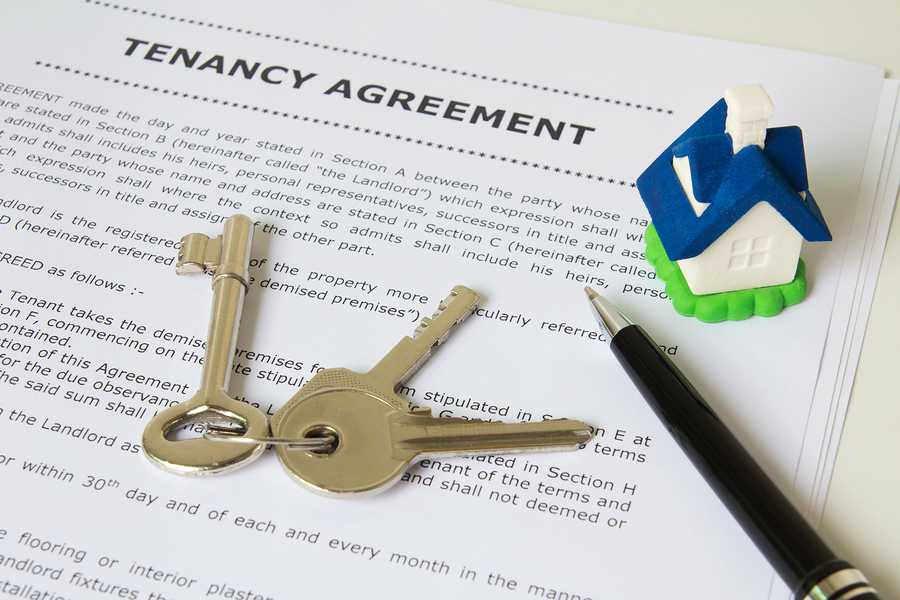
How Much Notice Must a Landlord Provide to Terminate a Tenancy?
- August 23, 2016
- William Heyman
- Comments Off on How Much Notice Must a Landlord Provide to Terminate a Tenancy?
Most landlords and property managers in Maryland are aware that providing notice is an essential first step in evicting a tenant from the landlord’s premises. While there are many reasons why a landlord would seek to terminate a lease and evict a tenant, one of the most common reasons for eviction is a failure to pay rent. However, some confusion can enter into the proceedings for landlords when it comes to tenants who may have held over and are now leasing in a month-to-month tenancy, tenants with an oral lease, and other situations where there is no written lease or it isn’t clear if the written commercial lease or residential lease applies.
When landlords engage in self-help and take action to remove tenants without providing notice, they compound their legal issues and may even face a lawsuit by the tenant. The Law Firm of William S. Heyman can provide careful guidance to landlords regarding the eviction of a tenant. To schedule a confidential consultation and discuss your questions about a commercial real estate legal issue, call the firm at (410) 305-9287 or online.
What Happens When a Tenant Overstays His or Her Lease?
When a tenant overstays his or her lease, he or she is said to “hold over.” In many scenarios, a tenant who refuses to vacate the premises despite the expiration of the lease presents serious problems for a landlord. The landlord may have promised the premises to a new commercial tenant or residential tenant or may have other plans for space. When a tenant holds over, the landlord frequently wants to evict the tenant as quickly as possible. However, landlords generally should not engage in self-help to remove a commercial tenant and should never do so in the case of a residential tenant.

Provided that a landlord approaches the legal situation created by a holdover tenant prudently, the tenant can typically be held liable for the actual damages caused by the holding over. However, the failure to provide adequate notice to the holdover tenant can result in additional delay in removing the tenant or even open the door for the tenant to file a lawsuit. Therefore issues requiring notice must be approached carefully by landlords.
How Much Notice Must a Landlord Provide the Tenant?
In nearly all situations, a landlord is required to provide a tenant notice before the tenancy can be terminated. In many cases, the lease itself will specify the required days of notice the landlord must provide. However, there are also statutory minimum notice periods. While a landlord and tenant may contract to provide a longer notice period, they cannot contract for a notice period that is shorter than the law requires.
The minimum amount of notice a landlord must provide to a tenant prior to an eviction action is determined by the type of lease and is set forth in the Real Property Article of the Maryland Code in Sections 8-208(d)(5), § 8-402, and § 8-501. If the tenancy is on a weekly basis, the landlord must provide a minimum of one week’s written notice.
- If the tenancy is on a monthly basis, the landlord is obligated to provide at least one month’s notice before the end of the month where the tenant is required to vacate.
- If the tenancy is yearly or renewed on an annual basis, a minimum of three months of notice is required.
- If the tenancy is for a defined period of time without a provision for renewal or a holdover tenancy at will then written notice must be provided at least one month before the action.
When calculating the number of days of notice that the landlord must provide, the day the written notice is delivered should not be counted. Furthermore, if the notice is dispatched by mail, the landlord should be aware that the court generally presumes that delivery has occurred after three days has passed. A landlord’s failure to recognize this common practice when providing notice by mail can result in failing to provide the required days of notice.

Landlords Can Work with a Baltimore Commercial Real Estate Attorney that Represents Commercial Landlords
The Law Firm of William S. Heyman is proud to assist landlords and property management companies achieve their business and legal goals. If you are seeking to remove a commercial or residential tenant in Maryland, Baltimore commercial real estate lawyer William Heyman may be able to help. To schedule a confidential consultation, call us at (410) 305-9287 or contact the firm online.
